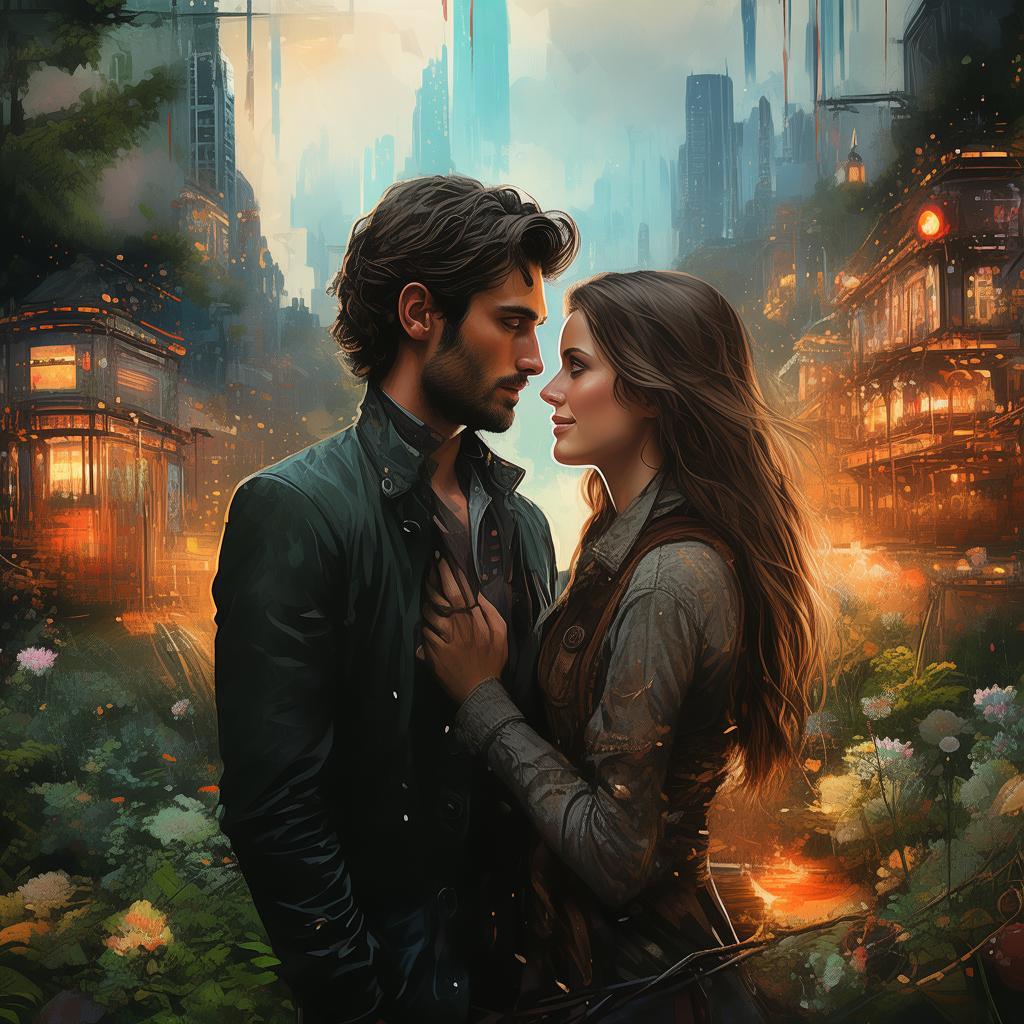Whispers of Forbidden Love
In the heart of 17th-century Prague, the air was thick with the scent of revolution and the stench of oppression. The Jewish quarter was a fortress within the city, walled off from the Christian world, yet its inhabitants yearned for freedom. Among them was Rabbi Eliezer, a man of profound wisdom and fiery spirit, whose teachings were both a beacon of hope and a catalyst for change.
Eliezer's life was one of solitude, his mind consumed by the scriptures and the suffering of his people. Yet, there was a void in his heart, a space that only a woman could fill. Her name was Rachel, a Christian woman of exquisite beauty and a soul as tender as her appearance belied. Theirs was a love that defied the laws of their faith and the prejudices of their time.
Rachel, the daughter of a prominent Christian merchant, had always been drawn to the Jewish quarter, fascinated by the rituals and the people who lived there. She found solace in the company of Rabbi Eliezer, whose wisdom spoke to her soul. Their love was a silent whisper, a secret that they shared only in the quiet moments of the night, when the world was asleep and their hearts were the only witnesses.
One evening, as the stars began to twinkle in the velvet sky, Eliezer found himself at Rachel's home, a place where he felt he could finally breathe freely. They spoke of the stars, of dreams, and of a world where love could conquer all. Rachel's eyes sparkled with the same hope that flickered in his own.
"Eliezer," she whispered, "I have a dream. I dream of a world where no one is bound by the chains of religion or prejudice. I dream of a world where love is the only law."
Eliezer's heart swelled with a newfound courage. "Rachel, my love, that dream is not just a dream. It is a reality that we can strive for, together."
Their love was a dangerous flame, one that could ignite the powder keg of their society. Eliezer knew that their union was forbidden, that their love could lead to suffering and even death. Yet, he could not bear to live without Rachel by his side.
As the rebellion gained momentum, Eliezer found himself at the forefront of the fight for freedom. He spoke passionately, calling for an end to the oppression that had plagued his people for centuries. Rachel, though not a part of the rebellion, stood by his side, her presence a silent testament to the power of love.
One fateful night, as the city was under siege, Eliezer and Rachel found themselves separated. The streets were filled with chaos, and the sounds of battle echoed through the night. Eliezer, caught in the crossfire, fought valiantly, his thoughts constantly returning to Rachel.
"Rachel," he cried out, "hold on to the hope we shared. Our love will never die."
But hope was a fragile thing in the face of war. Eliezer was captured by the Christian soldiers, and the fate of Rachel, along with the entire Jewish quarter, hung in the balance.
In the aftermath of the rebellion, the city was in ruins, and the Jewish quarter lay in shambles. Eliezer was imprisoned, his spirit broken by the loss of his people and his love. Rachel, though safe, was haunted by the memory of her beloved.

One day, as the sun rose over the city, Eliezer was freed from his cell. He wandered the streets, his heart heavy with sorrow. As he approached the Jewish quarter, he saw Rachel, standing at the gates, her eyes filled with tears.
"Eliezer," she called out, "I have been waiting for you."
They embraced, their love a testament to the power of the human spirit. Though their time together was fleeting, their love would live on in the hearts of those who heard their story.
As the years passed, the tale of Rabbi Eliezer and Rachel spread throughout the land. It was a story of love that defied the laws of man and the dictates of God. It was a story that showed that even in the darkest of times, the light of love could shine through.
In the end, Eliezer and Rachel's love was not just a whisper; it was a shout that echoed through the ages, a reminder that love, above all, is the ultimate rebellion against the chains of fate and the laws of men.
✨ Original Statement ✨
All articles published on this website (including but not limited to text, images, videos, and other content) are original or authorized for reposting and are protected by relevant laws. Without the explicit written permission of this website, no individual or organization may copy, modify, repost, or use the content for commercial purposes.
If you need to quote or cooperate, please contact this site for authorization. We reserve the right to pursue legal responsibility for any unauthorized use.
Hereby declared.









